“Ecologies braid into the everyday" for Leslie Carol Roberts, author of "Here Is Where I Walk"

Walking in a place can be a way to become more intimately connected to it. That is just what author Leslie Carol Roberts does at the Presidio National Park in San Francisco, California, where she lives. She wrote about these walks and places, including the Presidio, in her new nonfiction book, Here Is Where I Walk: Episodes From a Life in the Forest.
“For what is a walk in the forest if not a chance to fully and deeply celebrate the sauntering and reflective mind?” she asks in the introduction.
Through her walks and the months of the year, which structure the book, she reflects on ecology, experiences from her life, and stories and research on places, including California, Iowa, Maryland, and Tasmania. Through these reflections, she contemplates what nature and wild places are and what humans’ relationship with them is.
Formerly of Michigan, Roberts has covered news around the world as a journalist. She earned her MFA at the University of Iowa Nonfiction Writing Program and teaches and chairs the MFA Writing Program at California College of the Arts. Her first book, The Entire Earth and Sky: Views on Antarctica, discusses Antarctica and New Zealand.
Roberts will read at Literati Bookstore Monday, May 6, at 7 pm and at Source Booksellers in Detroit on Wednesday, May 8. Here, she shares about her experiences in Michigan, her new book, and her own reading.
Keep Talking: Valerie Jarrett, former senior advisor to President Obama, expressed optimism at The Michigan Theater

If I had been paying as much attention to national politics in 2009 as I do now, maybe I would have been more familiar with Valerie Jarrett, senior advisor to President Barack Obama. But her visit to the Michigan Theater on Monday, April 22, gave me the chance to learn more about her story.
I am so glad that I took that chance.
“You never know what can happen with a Michigan Law degree.” --Broderick Johnson
As part of her book took for Finding My Voice: My Journey to the West Wing and the Path Forward, Jarrett was in conversation with Broderick Johnson, an adjunct professor at the University of Michigan Law School. Maybe Johnson and Jarrett appeared to be so comfortable on stage because of their work together as advisors in the Obama administration. Maybe it was because their friendship was palpable. Maybe it was because they’re both University of Michigan Law School alumni and this felt like a homecoming of sorts. In any case, it was a pleasure to behold.
AADL's Fifth Avenue Press returns with five new books & a release reception on May 5
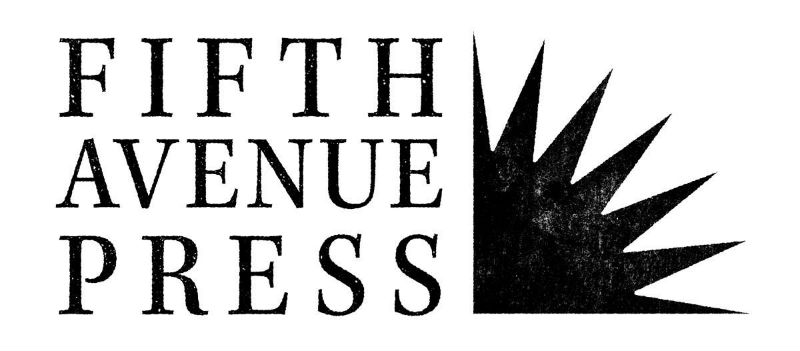
The Ann Arbor District Library's Fifth Avenue Press helps local authors produce a print-ready book at no cost -- from copyediting to cover design -- and the writers retain all rights. In return, the library gets to distribute ebooks to its patrons without paying royalties, but authors can sell their books -- print, digital, or audio -- however they choose and keep all the proceeds.
Started in 2017, Fifth Avenue launches its third round of books on Sunday, May 5, with a free catered reception from 1-3 pm in the lobby of AADL's downtown location, featuring author readings from the imprint's five new titles.
Click the book titles below to read interviews with the authors:
This Woman's Work: Camille Noe Pagan’s "I’m Fine and Neither Are You" tracks the troubles and radical honesty of a working mom

The opening chapters of Camille Noe Pagan’s fifth book, I’m Fine and Neither Are You, communicate the struggles of the modern-day working mother. Penelope Ruiz-Kar is in it up to her eyeballs, “which is pretty much every woman I know these days," says the Ann Arbor-based Pagan.
The book follows Penelope as she juggles a full-time job, an underemployed husband, and rambunctious children as well as day-to-day adulting. Meantime, Penelope’s best friend Jenny seems to have the perfect life -- a wealthy husband, an enviable marriage, the luxury of not having to work, one child who always behaved impeccably. Jenny appears to have it all, have it made. But everything is not what it seems.
"Guardians of Detroit: Architectural Sculpture in the Motor City" documents the artistry and symbolism during the city's golden age
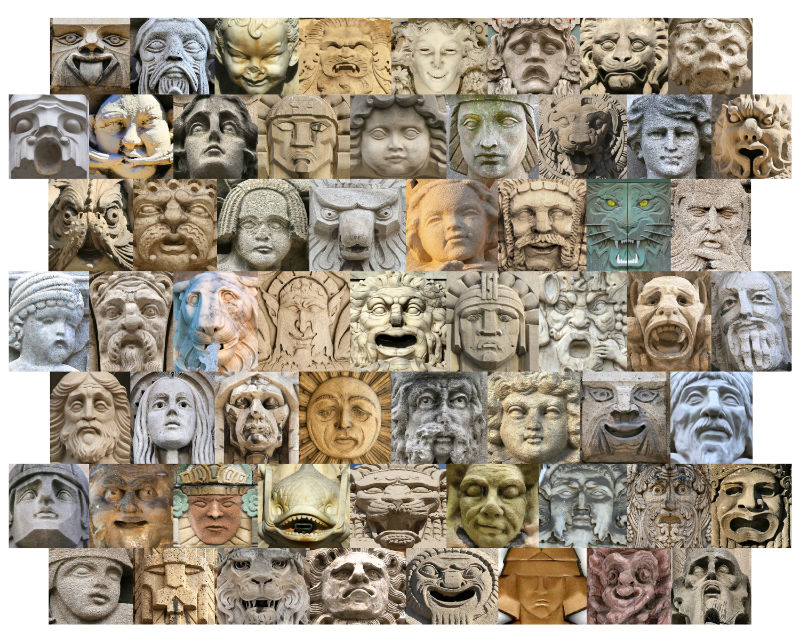
Due to a fortunate confluence of water, geography and entrepreneurial vision, Detroit at the end of the 19th century was poised to experience unprecedented growth. Even before the Ford Motor Company was established in 1903, Detroit was a major industrial center and transportation hub. All this commercial activity and prosperity led to a building boom of incredible proportions at a time when the most popular architectural styles were Beaux Arts, Gothic Revival, Classical Revival, and Art Deco. Each of these styles typically required extensive ornamentation and because of this, Detroit became a treasure trove of architectural sculpture.
Jeff Morrison’s new book for Wayne State University Press, Guardians of Detroit: Architectural Sculpture in the Motor City, documents these incredible features in a city that began as a small frontier fort and quickly grew to become a major metropolis and industrial titan. Morrison will be at Ann Arbor District Library's downtown location on Wednesday, March 27, at 7 pm for a presentation where he'll share more than 100 spectacular close-up pictures of architectural sculpture from throughout the city of Detroit. You will also learn about the symbolism behind the ornamentation and hear some of the untold stories of the artists, artisans, and architects involved in its creation, all drawn from the book.
Below is a sneak peek of 10 photos from Guardians of Detroit: Architectural Sculpture in the Motor City:
The Weinstein Effect: Ronan Farrow and Ken Auletta at The Wallace House
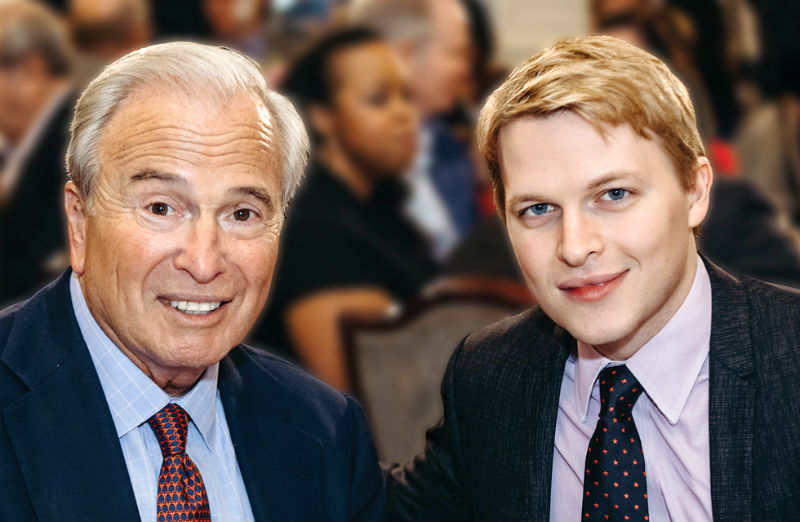
New Yorker journalists Ronan Farrow and Ken Auletta came to the University of Michigan on March 19 to discuss their work in breaking the Harvey Weinstein story. In particular, they spoke about what changed between 2002, when Auletta first attempted to write the story, and 2017, when Farrow succeeded. Farrow and Auletta were here on behalf of journalism powerhouse The Wallace House, and the crowd was full of noteworthy journalists. I waited in a long, snaking line to enter Rackham Auditorium and felt slightly inadequate.
For his writing on Weinstein and other powerful harassers, Farrow, along with The New York Times’ Jodi Kantor and Megan Twohey, won the 2018 Pulitzer Prize for Public Service. The Pulitzer joins a long list of Farrow’s other accomplishments: he graduated (yes, graduated) from Bard College at 15, earned a Yale law degree, worked for the State Department, and wrote the New York Times bestseller War on Peace: the end of Diplomacy and the Decline of American Influence. At some point in there, he also had a cable news show, became a Rhodes scholar, and is currently finishing a PhD from the University of Oxford. Ken Auletta is no slouch either, with 11 books and more than 25 years writing for the New Yorker under his belt. All of this is enough to make anyone feel that their life has been nothing but a pointless meandering of time.
Ypsilanti poet Rob Halpern's "Weak Link" connects the personal and the political
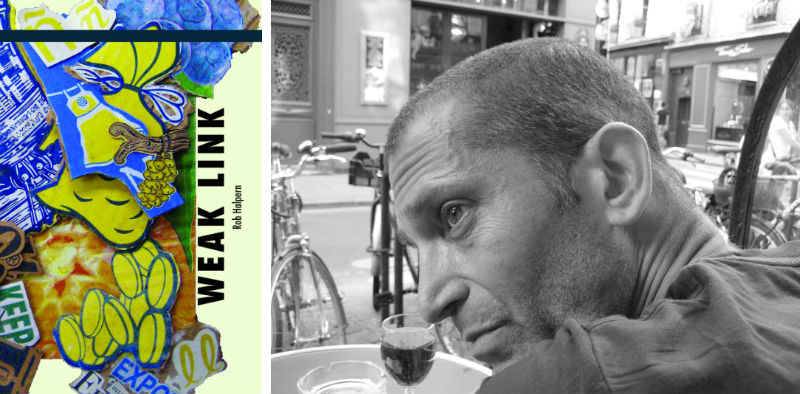
Ypsilanti writer and Eastern Michigan University professor Rob Halpern considers the relationship between the personal body and political violence in his new book, Weak Link. Through several forms ranging from poetry to numerical essay, Weak Link examines physicality, art, politics, and war, among other topics, and also is self-referential.
How the writing is working and what it is doing are explicitly addressed and questioned within the text itself. How do we understand and connect with that which we haven’t experienced? How do we go beyond ourselves and situations while still recognizing where we are and what is? What can poetry be and do? These questions and many more populate the collection.
The text expresses a desire to make connections between the public and the personal, between socio-political issues and the self who is interacting with them. At times reading like a stream of consciousness and at others like a well-plotted argument, Weak Link simultaneously consists of a thought experiment, aspirational view of poetry, and penetrating depiction of reality.
Halpern expands on his writing and Weak Link in this Pulp Q&A. He will read from Weak Link on Friday, March 8, at 7 pm at Literati Bookstore.
Huron High student reflects on what Claudia Rankin's "Citizen: An American Lyric" means to her for Big Read Ann Arbor

An initiative of the National Endowment for the Arts in partnership with Arts Midwest, the NEA Big Read broadens our understanding of our world, our communities, and ourselves through the joy of sharing a good book ... [and] aims to inspire conversation and discovery.
The Neutral Zone in Ann Arbor is sponsoring a series of Big Read events focusing on Claudia Rankin's "Citizen: An American Lyric." Huron High School junior Ciatta Tucker wrote about what the book means to her.
As a child, I loved reading books whether it was chapter books, graphic novels, comics, poetry, etc. I went to the local library so frequently that I became familiar and was on a first-name basis with the staff and other workers there. I was labeled as a gifted reader and at one point checked out more than 20 books at once.
Vern Smith’s novel "The Green Ghetto" aims to be an urban Western set in Detroit
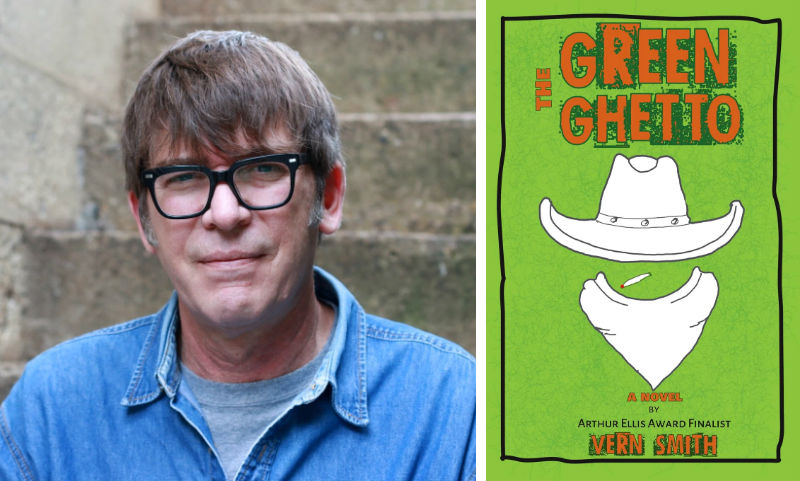
“Overnight I found my love affair with Detroit slipping away. My worldview changed," said author Vern Smith, speaking of his experience in the wake of the September 11, 2001, terrorist attacks in New York City.
Growing up in Windsor, Ontario, Smith said, “Detroit was my second hometown. I started sneaking over the border when I was 11 and found my culture there. Can’t tell you how many live shows I’ve seen there because it was so easy to access pre-9/11. Then it changed so abruptly and [the two cities] were being kept apart.”
Smith’s novel The Green Ghetto takes place a year after the New York attacks, which was about the same time the former journalist and broadcaster started working on short stories.
A Genuine Act of Discovery: U-M's Juan Cole on his book "Muhammad: Prophet of Peace Amid the Clash of Empires"
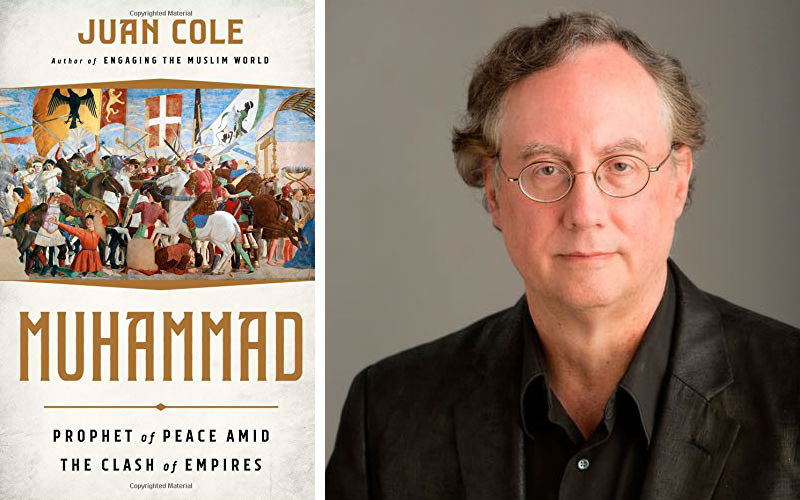
Dr. Juan Cole has spent his life dedicated to the study of the Middle East, Muslim South Asia, and religion. He’s been at University of Michigan since 1984, quoted in papers from the L.A. Times to the Baltimore Sun, and appeared on PBS Newshour, Nightline, and The Colbert Report. He received a National Endowment for the Humanities grant for research on Shiite Muslim thought and history, published translations of Arabic literature by Kahlil Gibran (and later, sponsored an exhibit of Gibran’s paintings at the Detroit Institute of Arts), acted as the director of the Center for Middle Eastern and North African Studies at U-M, served as editor in chief of the International Journal of Middle East Studies, and wrote or translated nearly 20 books.
This past October, Bold Type Books published Cole’s most recent book, Muhammad: Prophet of Peace Amid the Clash of Empires. The book’s publication at this particular time is in response to recent events around the world. “Extremist groups are misusing or using religious text in dishonest ways," Cole says. "North America and Europe have seen a rise in Islamophobia and the smearing of the prophet Muhammad.”
Cole originally studied early Islam and its foundations while in graduate school in Cairo and later at UCLA. “I got pulled away from the medieval studies," Cole says, "and pulled into writing about modern and contemporary issues in the Middle East by several events,” including the Iranian Revolution. “Although I had this earlier training, I didn’t put it to use in a whole book until now. I tried to tell the story as a response to this moment that we find ourselves in.”


































